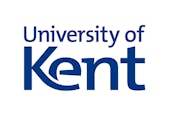Professor Jim Groombridge’s research interests lie primarily in population restoration, population and disease ecology, conservation genetics, genomics, and the geographical processes that determine the distribution of biodiversity. A central focus is the theoretical and practical aspects of endangered species conservation and the application of population, genetic, morphological and phylogeographic studies to enhance understanding of the biological processes that guide the conservation trajectory of endangered species. Alongside this work, he also utilises similar approaches to understand the evolutionary processes of invasive alien species, many of which can be expected to have population profiles that show strong population growth following initial small population size at foundation. These two themes are complementary: indeed, much of what we can learn about how populations of invasive alien species function can be applied to the conservation of endangered species.
Jim’s background of conservation work on island species in the Indian Ocean (Mauritius and Seychelles) and the Pacific (Hawaiian islands) has combined the practice of field monitoring and population recovery techniques with the more theoretical approaches of evolutionary phylogenetics and conservation genetics at the population level.
His research group focuses on the evolution, population genetics and conservation of endangered populations, with a particular emphasis on endemic island species. Islands are justifiably celebrated as living laboratories for evolutionary studies as well as a focus for efforts to conserve their biodiversity. Valuable insights for conservation can be gained from studying island endemics in view of their history of isolation from ancestral mainland populations, together with the problems they can encounter from invasive alien species and diseases.
Experience
-
–presentProfessor of Biodiversity Conservation, University of Kent
- Article Feed
- Joined


